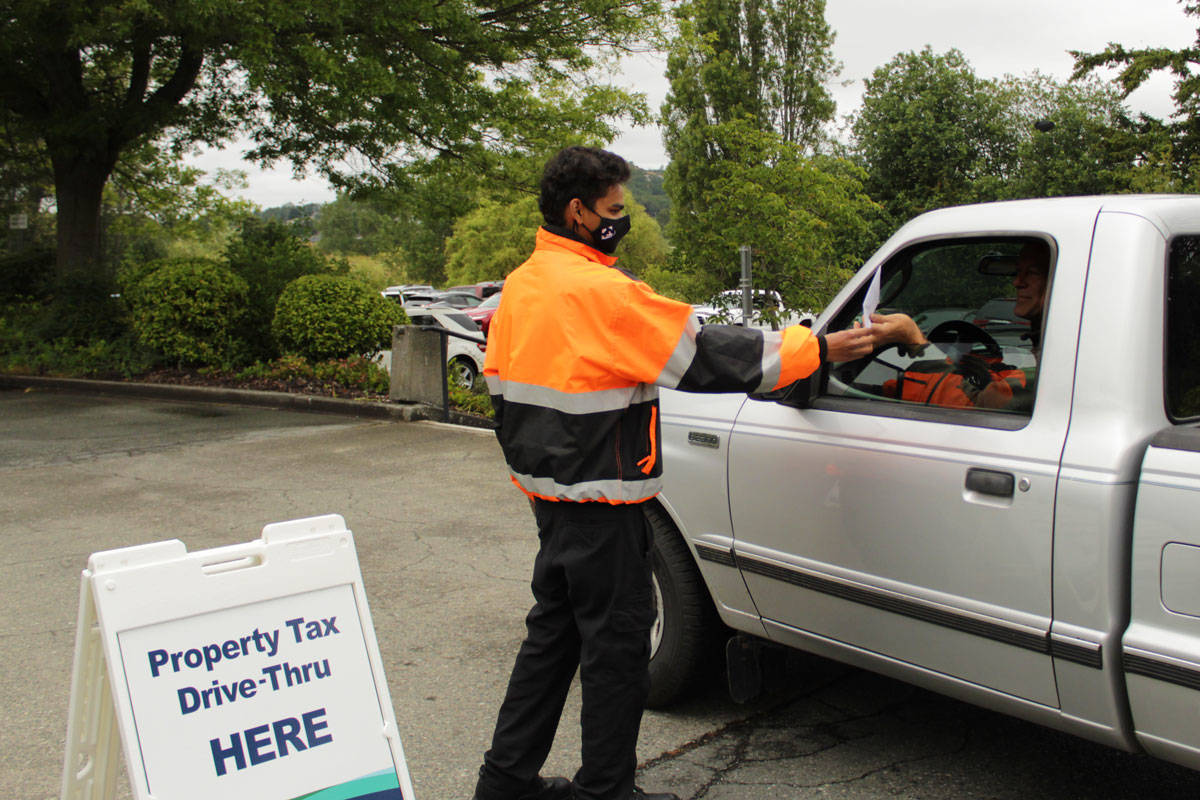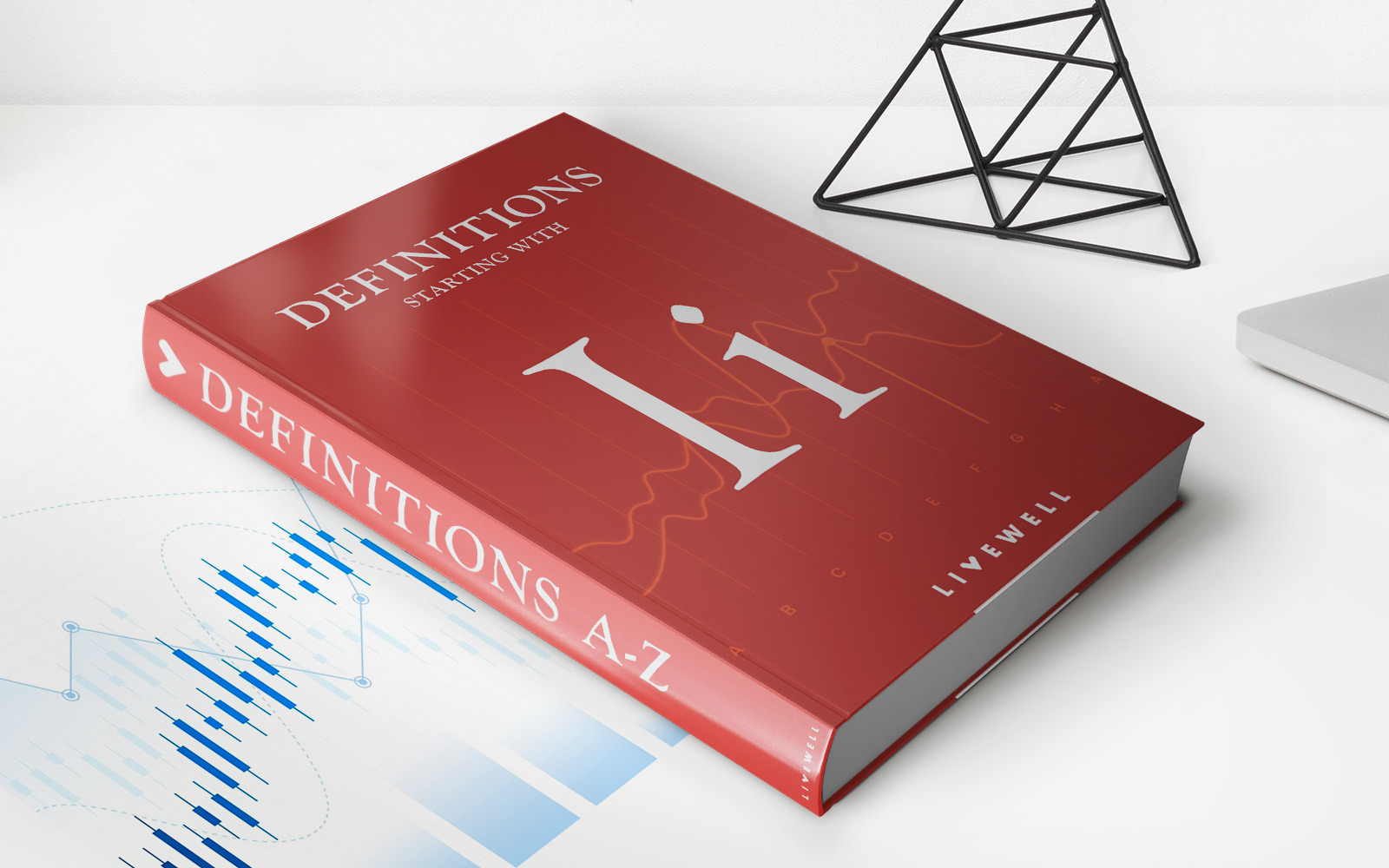

Finance
What Happens If You Pay Car Insurance Late?
Published: November 10, 2023
Late payment of car insurance can lead to penalties, higher premiums, and potential coverage gaps. Stay on top of your finances by paying your car insurance on time.
(Many of the links in this article redirect to a specific reviewed product. Your purchase of these products through affiliate links helps to generate commission for LiveWell, at no extra cost. Learn more)
Table of Contents
Introduction
Car insurance is a vital component of responsible vehicle ownership. It provides financial protection in case of accidents, theft, or damage to your car. Paying your car insurance premium on time is crucial to maintain coverage and ensure peace of mind.
However, life can get busy, and sometimes we may forget or find it challenging to make payments on time. So, what happens if you pay your car insurance late? In this article, we will explore the consequences of late car insurance payments and how they can impact you.
Understanding the implications of paying car insurance late is essential, as it can have significant repercussions on your coverage and finances. From increased premiums to potential policy cancellation, each late payment carries its own set of consequences.
But don’t worry; we’ve got you covered. By understanding the potential consequences and taking preventive measures, you can ensure that your car insurance remains active and your finances stay protected.
Understanding Car Insurance Payments
Before we delve into the consequences of late car insurance payments, it’s important to have a clear understanding of how car insurance payments work.
When you sign up for a car insurance policy, you agree to pay a premium to the insurance company. This premium can be paid on a monthly, quarterly, semi-annual, or annual basis, depending on the terms of your policy.
Car insurance companies offer various payment methods, including online payments, automatic deductions from your bank account, or traditional mail-in checks. It’s crucial to keep track of your payment due date and choose a payment method that works best for you.
Most insurance companies provide a billing statement or an electronic notification at least a few weeks before your payment is due. This allows you to review the amount due, confirm any changes in coverage or policy, and ensure that you have the necessary funds to make the payment.
Understanding your car insurance policy’s terms and conditions regarding payments is essential. Different policies may have varying grace periods and late payment policies, so it’s crucial to review the specifics of your policy to avoid any surprises.
Now that we have a basic understanding of how car insurance payments work, let’s explore what happens if you pay your car insurance late.
Late Payment Grace Period
Most car insurance policies come with a grace period for late payments. A grace period is a specified period after the due date during which you can still make the payment without penalty or immediate consequences.
The length of the grace period varies depending on the insurance company and your policy terms. It can range from a few days to a couple of weeks. It’s essential to understand the specific grace period outlined in your policy to know how much time you have before a late payment is considered overdue.
During the grace period, your car insurance coverage typically remains intact. However, it’s important to note that you may not be protected against claims or damages that occur during this time if your payment is late.
Insurance companies provide a grace period to accommodate situations where payments may be delayed due to unforeseen circumstances or genuine oversight. It’s meant to give policyholders a small window of flexibility before any penalties or consequences come into play.
If you can make the payment within the grace period, it’s generally advisable to do so to avoid any negative impacts on your policy and coverage. However, if you fail to make the payment within the grace period, it can lead to various consequences.
Now, let’s take a look at the potential consequences of late car insurance payments.
Consequences of Late Car Insurance Payment
While a late car insurance payment may not seem like a big deal, it can have significant consequences. Understanding these consequences is crucial to maintaining the integrity of your car insurance coverage and protecting your financial well-being. Here are some potential consequences of paying car insurance late:
- Increased Premiums: One of the most immediate consequences of paying car insurance late is a potential increase in your premiums. Insurance companies may view late payments as a sign of financial instability or increased risk, leading them to raise your rates.
- Policy Cancellation: If you consistently fail to make payments on time, your insurance company may decide to cancel your policy. This can leave you without any coverage and make it challenging to find affordable insurance in the future.
- Coverage Suspension: Even if your policy is not canceled immediately, your insurance company may suspend your coverage until you make the late payment. During this time, you will not be protected against any damages or claims, leaving you vulnerable.
- Impact on Credit Score: Late car insurance payments can also negatively impact your credit score. Insurance companies may report late payments to credit bureaus, which can lower your credit score and make it more challenging to secure loans or other forms of credit in the future.
These consequences highlight the importance of paying car insurance premiums on time. It’s crucial to prioritize these payments to maintain your coverage, avoid financial penalties, and protect your credit score.
So, what can you do if you find yourself in a situation where you’re unable to pay your car insurance premium on time? The next section will provide some insights on reinstating coverage and avoiding late car insurance payments in the future.
Increased Premiums
One of the immediate consequences of paying your car insurance late is the potential increase in your premiums. Insurance companies consider timely payment as a sign of responsible behavior and financial stability. When payments are repeatedly late, it may indicate a higher risk level to the insurance provider.
Insurance companies frequently review policyholders’ payment history when calculating premiums. Late payments can lead to an adjustment in your premium rate, often resulting in an increase. This adjustment may apply to your current policy term or during your next renewal.
The exact impact on your premiums can vary depending on factors such as your insurance provider’s policies, the number of late payments, and the duration of the late payments. In some cases, the increase in premiums can be significant, resulting in a higher financial burden.
To minimize or avoid increased premiums, it’s crucial to make timely payments. Set reminders for yourself, sign up for automatic payments, or opt for electronic notifications to ensure you don’t miss any due dates. By making payment punctuality a priority, you can maintain stable premiums and avoid unnecessary financial strain.
Additionally, if you find that your premiums have increased due to late payments, it’s worth considering shopping around for car insurance quotes. Compare rates from different providers to see if you can find a more competitive premium that suits your budget. However, keep in mind that shopping for insurance too frequently or having a history of late payments can also impact your ability to secure affordable coverage.
Remember, paying your car insurance premium on time is not only a financial responsibility but also an essential part of protecting yourself and your vehicle on the road. Avoiding late payments can help maintain long-term affordability and ensure you have the coverage you need when you need it.
Policy Cancellation
One of the most severe consequences of consistently paying your car insurance late is the potential cancellation of your policy. Insurance companies have the right to cancel your policy if you fail to meet the payment obligations outlined in your policy terms.
Policy cancellation can have significant implications for your car insurance coverage and your ability to find affordable insurance in the future. When an insurance company cancels your policy, it means you no longer have coverage, leaving you vulnerable to financial loss if an accident or other incident occurs.
The decision to cancel a policy is typically made after several consecutive late payments. Insurance companies view a pattern of late payments as a sign of financial instability or a higher risk of claims. As a result, they may choose to terminate your policy rather than continue providing coverage.
If your policy is canceled due to late payments, it can be challenging to find a new insurance provider willing to cover you. Insurance companies may consider your policy cancellation as a red flag, making it more difficult to obtain affordable coverage in the future.
To avoid policy cancellation, it’s crucial to make every effort to pay your car insurance premium on time. Utilize reminders, set up automatic payments, or establish a budgeting system to ensure your payments are made promptly. By prioritizing your car insurance payments, you can maintain continuous coverage and protect yourself financially.
If you are struggling to make a payment on time due to a temporary financial hardship, it’s advisable to contact your insurance provider. In some cases, they may be willing to offer alternative payment arrangements or discuss options to help you stay current on your premiums. Clear communication and proactively addressing any payment issues can help you maintain your coverage and avoid policy cancellation.
Remember, the cancellation of your car insurance policy can have long-lasting consequences on your ability to secure future coverage. Make timely payments a priority to protect yourself and your vehicle on the road.
Coverage Suspension
In addition to potential policy cancellation, late car insurance payments can also result in the suspension of your coverage. Coverage suspension means that your insurance company temporarily suspends the protection provided by your policy until your payment is made.
During the period of coverage suspension, you will not be protected against any damages, accidents, or claims that may occur. It’s important to note that coverage suspension often begins immediately after the grace period has expired, even if the payment is only a few days late.
While your coverage is suspended, any accidents or incidents that occur will not be covered by your insurance company. This means that you would be personally responsible for any damages or liability claims that may arise during the suspension period.
Coverage suspension can leave you financially exposed and put you at significant risk. Even a minor accident or incident could result in substantial out-of-pocket expenses without insurance coverage.
To avoid coverage suspension, it’s crucial to make every effort to pay your car insurance premium on time. Prioritize your insurance payments and consider setting up automatic payments or utilizing electronic reminders to ensure timely payment.
If you find yourself in a situation where your coverage has been suspended, making the payment as soon as possible is essential. Once the payment is received, your coverage will typically be reinstated, but it’s important to confirm this with your insurance provider.
Remember, the suspension of your car insurance coverage can expose you to unnecessary financial risk. Stay proactive and make timely payments to ensure the continuous protection of yourself and your vehicle.
Impact on Credit Score
Late car insurance payments can have a negative impact on your credit score. When you sign up for car insurance, the insurance company may report your payment history to credit bureaus. Late payments are considered a negative mark on your credit report and can lower your credit score.
Your credit score is an important financial metric used by lenders and other service providers to assess your creditworthiness. A lower credit score can make it more challenging to secure loans, obtain favorable interest rates, or even qualify for certain services.
If your car insurance payments are consistently late, it’s a sign to credit bureaus that you may have difficulty managing your financial responsibilities. This can result in a lower credit score, which can have far-reaching implications beyond just your car insurance coverage.
It’s important to note that not all insurance companies report late payments to credit bureaus. However, many do, so it’s best to assume that your late payments could impact your credit score.
To avoid detrimental effects on your credit score, prioritize making car insurance payments on time. Utilize reminders, set up automatic payments, or establish a budgeting system to ensure prompt payment.
If you find yourself facing financial hardship and are unable to make a payment on time, consider contacting your insurance provider. They may be willing to offer temporary payment arrangements or alternative options to help you stay current on your premiums and mitigate the impact on your credit score.
Remember, maintaining a good credit score is essential for your overall financial well-being. Paying your car insurance premium on time is not only crucial for coverage but also for preserving your creditworthiness and securing favorable financial opportunities in the future.
Reinstating Coverage
If your car insurance coverage has lapsed due to late payments or non-payment, you will need to take steps to reinstate your coverage. Reinstating coverage means resuming your policy and having the same level of protection as before.
The process of reinstating coverage may vary depending on the insurance company and the specific circumstances surrounding the lapse in payment. Here are some common steps to reinstate your car insurance coverage:
- Contact your insurance provider: Reach out to your insurance company as soon as possible to discuss the situation and inquire about the reinstatement process. They will be able to provide you with specific instructions and requirements.
- Make the late payment: Pay any outstanding premiums plus any applicable fees or penalties. Depending on the insurance company, you may be required to pay the full amount owed or a partial amount to reinstate your coverage. It’s important to clarify this with your insurance provider.
- Provide any necessary documentation: Your insurance company may request updated information or documentation during the reinstatement process. This could include verifying your driving record, updating your personal details, or providing proof of residency.
- Confirm reinstatement: Once you have made the payment and provided any required documentation, confirm with your insurance provider that your coverage has been reinstated. It’s important to have this confirmation in writing for your records.
Keep in mind that the reinstatement process may differ depending on the length of the lapse in coverage and your insurance company’s policies. In some cases, insurance companies may also require you to pay the missed premiums in full before reinstating your coverage.
It’s crucial to act promptly when it comes to reinstating your car insurance coverage. Driving without insurance is illegal in most jurisdictions and can result in significant penalties or legal consequences.
To avoid the hassle of reinstating coverage in the future, make timely car insurance payments a priority. Set reminders, utilize automatic payment options, or consider electronic notifications to ensure you stay on top of your payments.
By maintaining continuous coverage, you not only protect yourself financially but also avoid the inconvenience and potential legal ramifications of a coverage lapse.
Avoiding Late Car Insurance Payments
Late car insurance payments can lead to a variety of consequences, from increased premiums to policy cancellation. To prevent these negative outcomes and ensure continuous coverage, it’s essential to prioritize timely payments. Here are some strategies to help you avoid late car insurance payments:
- Set up reminders: Use calendars, alarms, or mobile apps to set reminders for your car insurance payment due dates. This will help ensure that you never miss a payment.
- Utilize automatic payments: Consider enrolling in automatic payment options offered by your insurance company. This way, your premiums will be deducted directly from your bank account on the scheduled payment date, eliminating the risk of forgetting to make the payment.
- Review your policy: Regularly review your car insurance policy to familiarize yourself with the payment terms and any changes that may have occurred. Being aware of the due dates and payment methods will help you stay on track.
- Adjust your budget: If you find it challenging to make your car insurance payments on time, consider revisiting your budget. Look for areas where you can cut expenses or allocate more funds towards your insurance premium.
- Communicate with your insurance provider: If you anticipate difficulty in making a payment on time, reach out to your insurance company. They may be able to provide you with flexible payment options or suggest alternatives to help you stay current on your premiums.
- Consider payment frequency: If making monthly payments proves challenging, inquire with your insurance company about other payment frequency options. Some companies offer quarterly, semi-annual, or annual payment plans that may align better with your financial situation.
- Shop around for competitive rates: If you consistently struggle to make timely payments, it may be worth exploring other insurance providers for more affordable options. However, keep in mind that frequent changes in insurance companies or policies can also negatively impact your ability to secure coverage at reasonable rates.
By implementing these strategies, you can establish a routine of paying your car insurance premium on time and avoid the negative consequences of late payments. Timely payments not only maintain your coverage but also contribute to a positive payment history that can benefit your credit score and future financial opportunities.
Remember, car insurance is not just a legal requirement but also an essential means of protecting yourself and your assets. Make paying your car insurance premium a priority to safeguard your financial well-being and have peace of mind on the road.
Conclusion
Paying your car insurance premium on time is crucial for maintaining coverage and protecting your financial well-being. Late car insurance payments can lead to increased premiums, policy cancellation, coverage suspension, and negative impacts on your credit score. To avoid these consequences, it’s important to prioritize timely payments and take proactive measures to prevent late payments.
Understanding your car insurance payment terms, including grace periods and late payment policies, is essential. Familiarize yourself with the due dates, payment methods, and any changes to your policy to stay on track with your payments.
Utilize reminders, automatic payment options, and budgeting strategies to ensure you never miss a payment. If you experience a temporary financial hardship, communicate with your insurance provider to explore alternative payment arrangements or options to help you stay current on your premiums.
Late car insurance payments can have long-lasting consequences, including increased premiums, policy cancellation, coverage suspension, and negative impacts on your credit score. By making timely payments, you can maintain continuous coverage, protect your finances, and avoid unnecessary stress and financial burden.
Remember, car insurance is not just a legal requirement but also a crucial means of protecting yourself, your vehicle, and your financial future. Prioritize paying your car insurance premium on time to ensure peace of mind on the road and maintain a positive relationship with your insurance provider.














